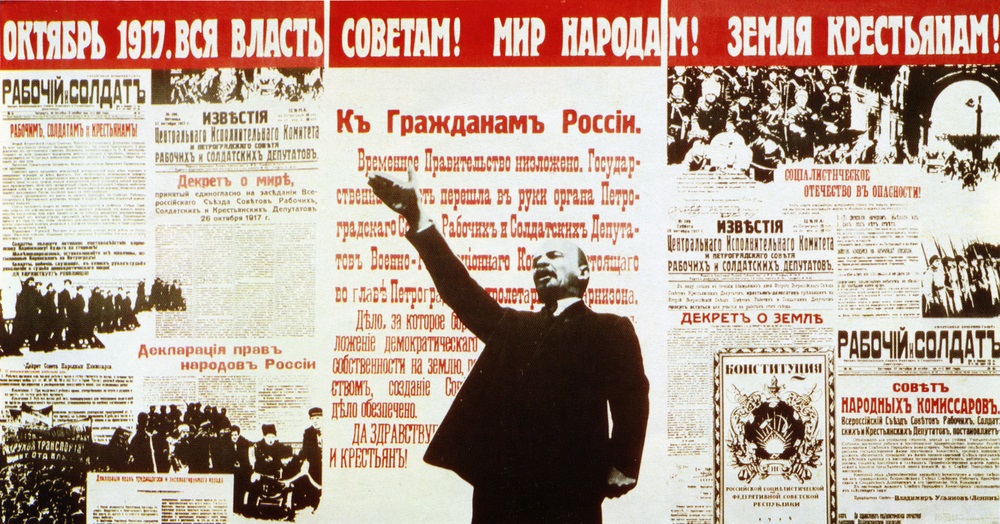The 20th century produced fictional dystopias besides real ones, yet the best known – like George Orwell’s Nineteen Eighty-Four – originated in liberal democracies. All, however, owe much to a novel from one from one of the real dystopias, We, by the Soviet Union’s Yevgeny Zamyatin.
Born in 1887, Zamyatin became a Bolshevik while a student, was arrested during the 1905 revolution, exiled twice from St Petersburg, and tried for “maligning the Russian officer corps” with his satires of army life. His hopes that the 1917 revolution would bring artistic freedom were quickly disappointed: The revolution had not liberated artists, instead they now had to create art to serve the revolution. In 1921, he wrote:
Much has been said by many about the imperfection of the universe…its astonishing lack of monism: water and fire, mountains and abysses, saints and sinners. What absolute simplicity, what happiness, unclouded by any thought, there would have been if [God] had from the very first created a single firewater, if he had from the first spared man the savage state of freedom! …We are unquestionably living in a cosmic era – an era of creation of a new heaven and a new earth. And naturally we will not repeat [His] mistake. There shall be no more polyphony or dissonances. There shall only be majestic, monumental, all-encompassing unanimity.
In We, written in 1920-1921, Zamyatin explored these fears.
It is set in the One State in the far future, where, its protagonist, D-503, writes:
Every morning, with six-wheeled precision, at the same hour and the same moment, we – millions of us – get up as one. At the same hour, in million-headed unison, we start work; and in million-headed unison we end it. And, fused into a single million-handed body, at the same second, designated by the Table, we lift our spoons to our mouths. At the same second, designated by the Table, we lift our spoons to our mouths. At the same second, we come out for our walk, go to the auditorium, go to the hall for Taylor exercises, fall asleep…
The “right” to lower ones shades:
…is granted only on sexual days. At all other times we live behind our transparent walls that seem woven of gleaming air – we are always visible, always washed in light. We have nothing to conceal from one another. Besides, this makes much easier the difficult and noble task of the Guardians. For who knows what might happen otherwise? Perhaps it was precisely those strange, opaque dwellings of the ancients that gave rise to their paltry cage psychology. “My (sic!) home is my castle.” What an idea!
Indeed, D-503 is horrified by “those times when people still lived in a free, i.e., unorganized, savage condition.” In the Soviet Union’s early days, Zamyatin saw Edward Bellamy’s socialist utopia from Looking Backward: 2000–1887 being realized and hated it.
Like Adam – or Winston Smith – D-503 is lured into a doomed rebellion. “Those two, in paradise, were given a choice,” he is told, “happiness without freedom, or freedom without happiness.” Zamyatin assumes that the system works on its own terms, that it can guarantee happiness. History would show that he was mistaken, these systems produced neither happiness nor freedom. When Orwell was told by a supporter of Soviet repression “You can’t make an omelet without breaking eggs,” he replied, “Where’s the omelet?”
We was denied publication, first appearing in English in 1924, and a reading to the Writer’s Union in 1923 drew attacks from Zamyatin’s fellow writers. Through the 1920s the state sponsored Russian Association of Proletarian Writers denounced him for “inconsonance with the revolution” and “vilification and slander” of revolutionary beliefs. He was “maligning” again. Fighting his own doomed rebellion, Zamyatin wrote of his fellow writers in 1926: “The Revolution does not need dogs who “sit up” in expectation of a handout or because they fear the whip.” Nevertheless, that is what it got. The flowering of Russian literature which began with Pushkin ended, at least for those writers who stayed in Russia. Wearied, Zamyatin left the Soviet Union in 1931, traveling to Paris where he died in 1937.
In 1962, Isaac Asimov wrote that American science fiction had seen three stages: “adventure dominant,” “technology dominant,” and “sociology dominant” while Soviet science fiction remained in stage two. “The Soviet people are told, and presumably believe, that they are building a new society which is bound, by the sheer attractiveness of its superior workability, to become the dominant society all over the world,” he wrote. “It would amount, then, almost to a lack of patriotism for a Soviet writer to suggest that other societies were possible in the future, or even to look too closely at the present one.” Asimov wasn’t quite correct. We is a stage three novel, one of the greatest of the century.
John Phelan is an Economist at Center of the American Experiment.
The post We at 100 – Econlib appeared first on FeeOnlyNews.com.
